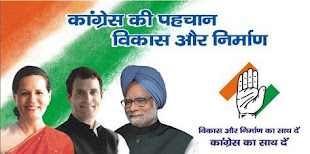V. Mohan Rao
Comity of nations across the globe, having faith in democracy continue to pay homage to Mahatma Gandhi on his birth day on the 2nd day of October every year because of the relevancy of his time-tested principles of truth and non-violence. The over six decades old philosophy continued to be relevant in the modern world even today. Gandhi’s philosophy of Satyagraha (Truth) and Non-violence (Ahimsa) has lead the United Nations to adopt his birthday as the International Day of Non-Violence thus declaring him a global ambassador for preaching peace and communal harmony. The United Nations General Assembly had adopted a resolution to this effect on 15th of June 2007. In the home front, the Father of the Nation continued to be an undeclared brand ambassador for achieving social justice in the promotion of communal harmony, eradication of poverty, women’s rights, universal education and other burning problems of the day. His contribution in these sectors is the befitting reply to those who ask the question — Is Mahatma Gandhi relevant today. His enumeration of seven sins like politics without principles, wealth without work, pleasure without conscience, commerce without morality, science without humanity and worship without sacrifice, will continue to guide the humankind forever. He always preached for respect to various cultures and religions based on the fundamentals of Listening, Speaking and Appreciating each other as he believed that in a vibrant democracy, the concerns of everyone, predominantly, the poor, women and disadvantaged communities must be addressed. Gandhi always preached “the best way to find yourself is to lose yourself in the service of others.” This gives the message that as India experiences rapid growth, it is vital that its citizens work together to ensure that the progress made is truly inclusive and that weaker sections are equal stakeholders in the processes of development. Eminent historians likened Gandhi to be a politician, an economist, a doctor, a nutritionist, an environmentalist and a spiritual master - all rolled into one. This is also evident from the description of Mahatma Gandhi as the legendary Indian icon by no less than the American President Mr Barack Obama, who has asked the young Africans to follow Gandhi in bringing changes in the continent. In his address to the Young African Leaders from nearly 50 African countries at the White House on 4th of August this year, Mr Obama quoted Gandhi as having said – “you have to be the change that you seek.” Gandhi proved to the world that freedom can be achieved through the path of non-violence, a true symbol of peace and truth.
Tributes To The Mahatma
Gandhi Jayanti provides a platform to the people to emulate the great preachings of the Mahatma (Great Soul). A grateful nation, has renamed several of its flagship programs aimed at providing employment and educational opportunities besides health facilities to the people, particularly the women and the poor after him. The National Rural Employment Guarantee Scheme is one among them providing job guarantee for 100 days in the rural areas. Gandhi pushed for education as a mass weapon for salvation, freedom and success in life. In a befitting tribute to the Father of the Nation, the Mahatma Gandhi Institute of Education for Peace and Sustainable Development (MGIEP), a UNESCO institute, will be unveiled on his 141st birth anniversary in New Delhi. This will be the Category-I institute of UNESCO to be located in Asia. Out of 11 such institutes, nine are situated in the developed world and the two others in Ethiopia and Venezuela. The Human Resource Development Ministry has made a financial assistance of Rs.223 crore for setting up of the Institute. Meanwhile, the HRD Ministry informed the recently concluded Parliament session that India and Australia have agreed to set up a Joint Education Council (JEC). The India-Australia Education Council, will bring together government, academia, business and industry of both the countries to enhance bilateral collaboration in the education sector. The government has decided to provide financial assistance for establishing Gandhi Heritage Sites Portal. A Corpus fund is being set up for which Rs.4 crore are being released to the Sabarmati Ashram Preservation and Memorial Trust (SAPMT). The decision was based on the recommendations made by a panel of eminent Gandhians, set up by the Centre in 2006. The major recommendations of the 6-member Panel, headed by Gopal Krishna Gandhi, included the setting up of the Gandhi Heritage Sites Mission with five Zonal Centre besides the setting up of SAPMAT at Ahmedabad. Sabarmati Ashram contains the largest collection of carefully preserved manuscripts of Gandhi’s writings during his stay there. The Library and Archives at Sabarmati consist of 34,111 letters - either to Gandhiji or from him; original as well as photocopies. These letters have already been microfilmed and entered into a Register. Government of India has also decided to set up the Gandhi Heritage Sites Mission with a total outlay of Rs. 42 crores during a five-year period. The Mission will initiate conservation/restoration and preservation of Gandhi Heritage Sites, which will be an ongoing exercise. The Panel has recommended 39 Core Sites which include Porbandar and Rajkot sites of the childhood period, Tilak Ghat, Chennai, Mani Bhavan, Mumbai, Beliaghata, Kolkata, the venue in Madurai where Gandhiji took to the loin-cloth, the prison cell in Yeravda Jail, Pune, and the prison room in Aga Khan Palace (Pune). The list of Gandhi Heritage Sites has covered almost every single place visited and associated with Gandhi from 1869 to 1948, in India, the United Kingdom, South Africa, Mauritius, Burma (Myanmar), Ceylon (Sri Lanka) and other venues. The government plans to publish a Comprehensive Master List. The UNESCO has agreed to support the Indian government in achieving the goal of Education for all children between 6 to 14 years by the year 2015. Its Director-General, Ms. Irina Bokova, gave an assurance to this effect in New Delhi early January this year saying that it is extremely important to promote primary education.



























0 Comments